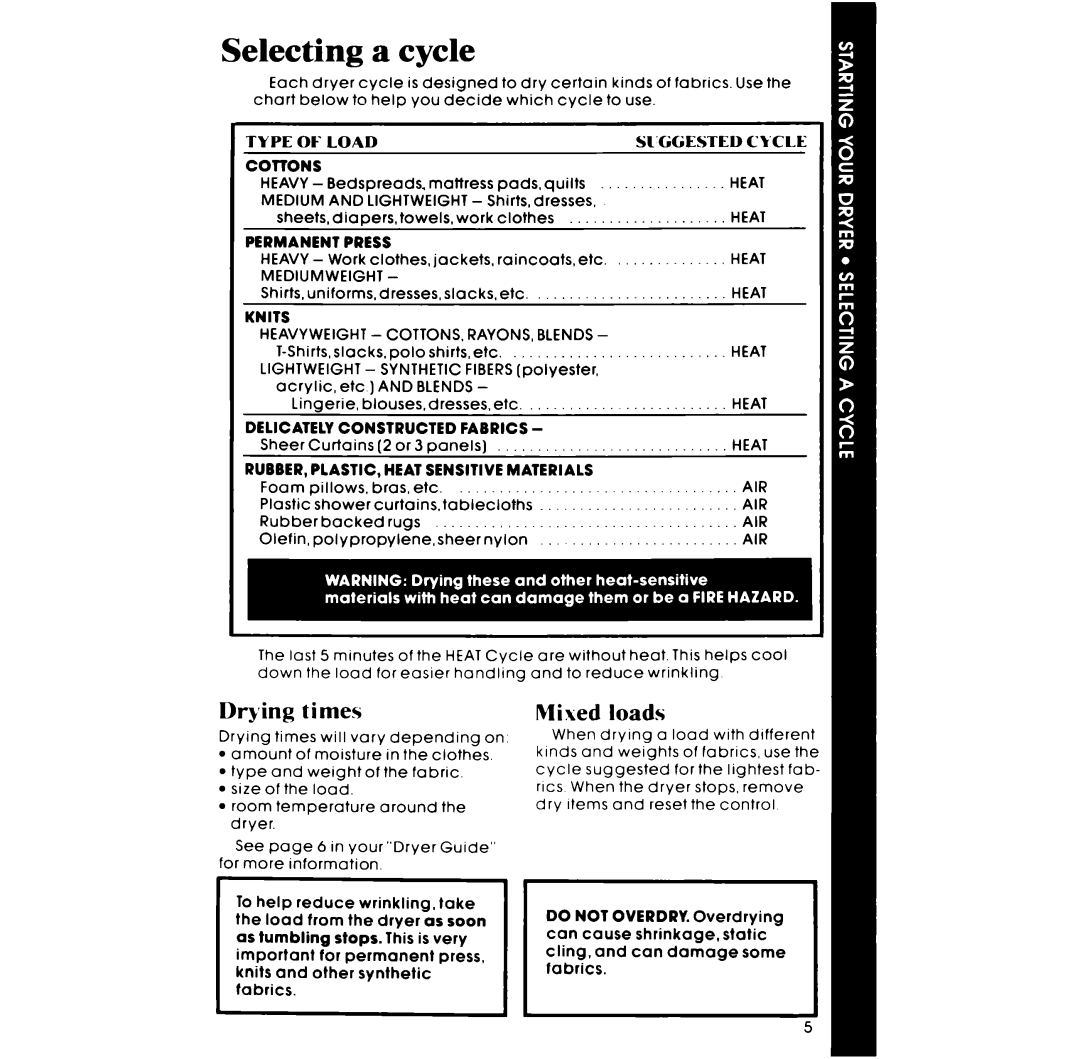
Selecting a cycle
Each dryer cycle is designed chart below to help You decide
to dry certain kinds of fabrics. Use the which cycle to use.
TYPE OF | LOAD |
|
| SZ’GGESTED CYCLE |
COTTONS |
|
|
| HEAT |
HEAVY - | Bedspreads. | mattress | padsquilts | |
MEDIUM AND LIGHTWEIGHT - Shirts, dresses, | HEAT | |||
sheetsdiaperstowels, | work | clothes | ||
PERMANENT PRESS
HEAVY | - Work | clothes, | jackets, |
| raincoatsetc. | HEAT |
MEDIUMWEIGHT | - |
|
|
|
| |
Shirts,uniforms,dresses,slacks,etc. |
|
| HEAT | |||
KNITS |
|
|
|
|
|
|
HEAVYWEIGHT - COTTONS, RAYONS, BLENDS - |
| |||||
polo | shirtsetc. |
|
| HEAT | ||
LIGHTWEIGHT - SYNTHETIC FIBERS (polyester, |
| |||||
acrylic, etc ) AND BLENDS - |
|
| HEAT | |||
Lingerie, blousesdressesetc. |
|
| ||||
DELICATELY CONSTRUCTED FABRICS - |
| |||||
Sheer | Curtains | 12 or 3 banelsl |
|
| HEAT | |
RUBBER,PLASTIC, HEAT SENSITIVE MATERIALS | AIR | |||||
Foam | pillows, | bras, etc. |
|
| ||
Plastic | shower | curtains.tableclath;’ | : : 1: : : : : : : : : 1: 11: : : : 1: : : : AIR | |||
Rubber | backed | rugs |
|
|
| AIR |
Olefin, | polYpropYlene,sheer | nylon | AIR | |||
The last 5 minutes of the HEAT Cycle are without heat. This helps cool down the load for easier handling and to reduce wrinkling
Drying | times |
|
|
Drying | times will vary | depending | on. |
l amount of moisture in the clothes. |
| ||
l type and weight of the fabric. |
| ||
l size of the load. |
|
| |
l room | temperature | around the |
|
dryer. |
|
|
|
See page 6 in your”Dryer Guide” for more information.
Mixed loads
When dryrng a load with drfferent kinds and weights of fabrics, use the cycle suggested for the lightest fab- rrcs When the dryer stops, remove dry Items and reset the control
To help reduce wrinkling, take the load from the dryer as soon as tumbling stops. This is very
important for permanent press, knits and other synthetic
fabrics.
DO NOT OVERDRY. Overdrying can cause shrinkage, static cling, and can damage some fabrics.
5
